We Asked A Doctor 20 Common Questions About Birth Control, And Here Are Their Answers
In 2018, which is some of the most recent data we have, 65% of US women aged 15–49 were using a contraceptive method. Birth control has come so far in many ways. There are around 12 methods (and counting!) of birth control currently on the market, and while this is incredible, it can also make things a little...confusing. Which is why we're back with another piece where we will ask the experts for you! And this time we're focusing on birth control specifically.

So we asked members of the BuzzFeed Community to let us know what questions they had about birth control. And then we enlisted the help of Dr. Nancy Shannon, MD and PhD, a board-certified physician with more than 20 years of experience from the women's health platform Nurx, to answer the questions you may have about birth control.

1."Is there a hormonal birth control that is generally regarded as causing the least amount of emotional side effects?" —Anonymous

Dr. Nancy Shannon: There have been a number of studies looking at the question of whether hormonal birth control affects mood. For example, one study looking at reasons for discontinuing the pills found that about 20% of people just starting the pill were a little, some, or a lot more moody. Some of these women stopped taking the pill. Other studies have found that this side effect goes away or gets much better after a few months. Another study showed that women using birth control pills were more likely to begin antidepressants, but the overall antidepressant use was considered low.
We know for sure that newer birth control pills with 35 micrograms or less of estrogen are much less likely to affect your mood than the older, higher-dose pills. However, there is not a particular pill that is best at avoiding this side effect. It can be very user-dependent. In general, a lower dose pill with 25 micrograms or less of estrogen may be a better place to start if you have concerns.
If you feel hormonal birth control has affected your mood, it is important to talk this over with your healthcare provider. If your symptoms are severe, seek medical help immediately. There are options.
2."Is it true that a) a whole week's worth of active birth control pills is the same as Plan B, b) is Plan B only effective under a certain weight, and c) if either of these are true, can you please explain the science?" —annalolo

Dr. Nancy Shannon: The progesterone in Plan B and its generics is similar to that found in regular birth control pills, but in a higher dose. Before Plan B was FDA-approved, some doctors recommended a form of emergency contraception called the Yuzpe Method that involved taking regular birth control pills in higher numbers after sex. The problem with this method is that the large amount of estrogen often leads to vomiting, and, more importantly, it is less effective than the newer alternatives.
There is some evidence that Plan B is less effective in people who weigh 165 pounds or more. Many medications are less effective with increased body weight, and the dose needs to be adjusted. We recommend people who weigh 165 pounds or more take prescription-only Ella instead.
3."Does the birth control pill cause weight gain from water retention? Is there any birth control that doesn't cause weight gain from water retention? Am I imagining it? Is my weight gain from the stress of a pandemic?" —mariat4e50d731d
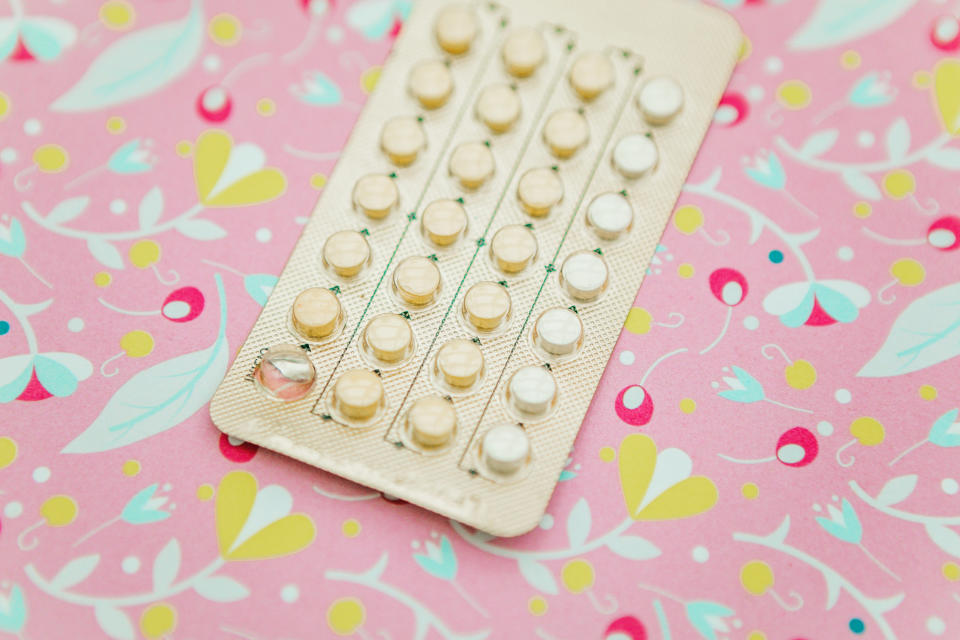
Dr. Nancy Shannon: We get a lot of questions about birth control and weight gain, but there is currently little evidence that hormonal birth control causes weight gain — with the exception of the birth control shot. The shot has been shown to lead to weight gain of up to 5 pounds in some women, though the weight gain reverses when the shot is stopped. Sometimes, the weight gain people attribute to birth control is due to other factors, like the metabolism slowing down with age.
It is possible for the pill to cause water retention, especially in the first few months of taking it. We encourage everybody to give a new birth control method three to four months, because it often takes your body that long to adjust to the mix of hormones. After that, if you feel that your pill isn’t working for you, let your medical provider know! They may be able to suggest something different that is more suited to you and your body.
4."Will taking birth control lower your chances of getting pregnant? Why do people think it does?" —Anonymous

Dr. Nancy Shannon: The short answer is no! Multiple studies have shown that taking birth control has no impact on your future fertility, no matter how long you take birth control! If you start birth control at 25 and stop taking it at 35 to try to conceive, you are less fertile than you were before the 10 years spent on the pill, but it has nothing to do with the pill.
5."I fly long haul quite a lot. Does this increase my chance of blood clot if I'm also on the pill?" —bri87124
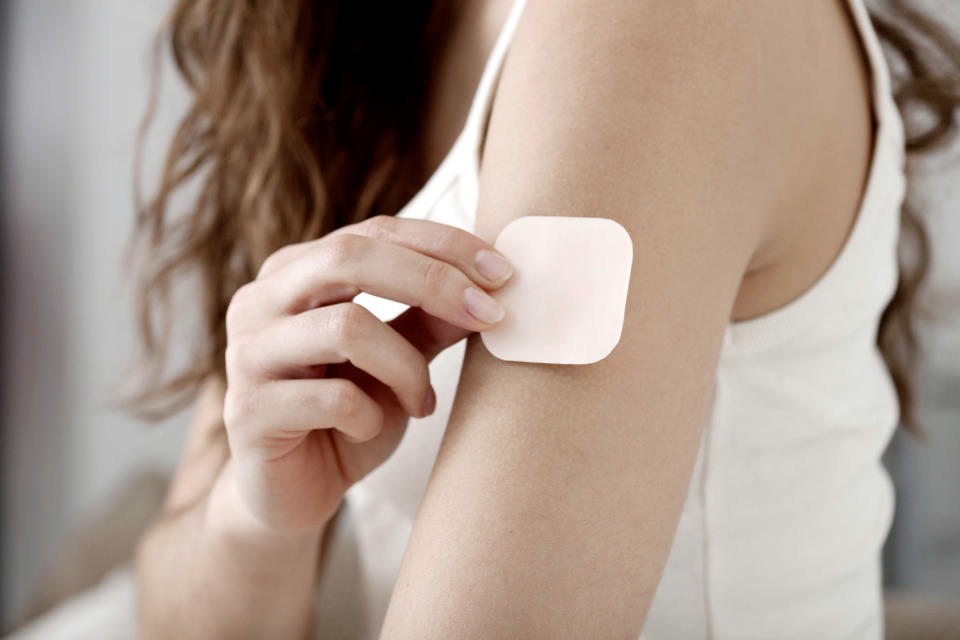
Dr. Nancy Shannon: Inactivity on a long flight can increase the risk of blood clots for anyone. It is particularly important for people who use an estrogen-containing birth control pill, patch, or ring to get up and move as often as possible. To reduce your risk of blood clots, you could consider a progestin-only pill after a conversation with your doctor.
6."While on the pill and traveling to another time zone, should I take my pill at the same scheduled time in the new time zone, or should I make sure to take it when it's the scheduled time in the first time zone?" —Anonymous

Dr. Nancy Shannon: You should do your best to take your pill when it's the scheduled time in the first time zone. Recognizing this could mean waking up in the middle of the night; you could gradually shift the time you take your pill by an hour or two in the days leading up to your trip. Remember that it's particularly important to take progestin-only pills within a 3-hour window.
7."How long after you get off of birth control will you be able to conceive?" —Anonymous

Dr. Nancy Shannon: With most forms of birth control, you can conceive immediately after you stop taking them; that’s why it’s essential to take them as prescribed. In the case of the minipill (progestin-only birth control pill) that means within the same three-hour window every day. The one exception to this is the birth control shot, which does cause a delay in the return of fertility in some people (but not all people — so be sure to get your shots on schedule if you use this method).
8."Can I ask about the history of birth control, specifically pre-1900 if you know anything about it?" —Anonymous
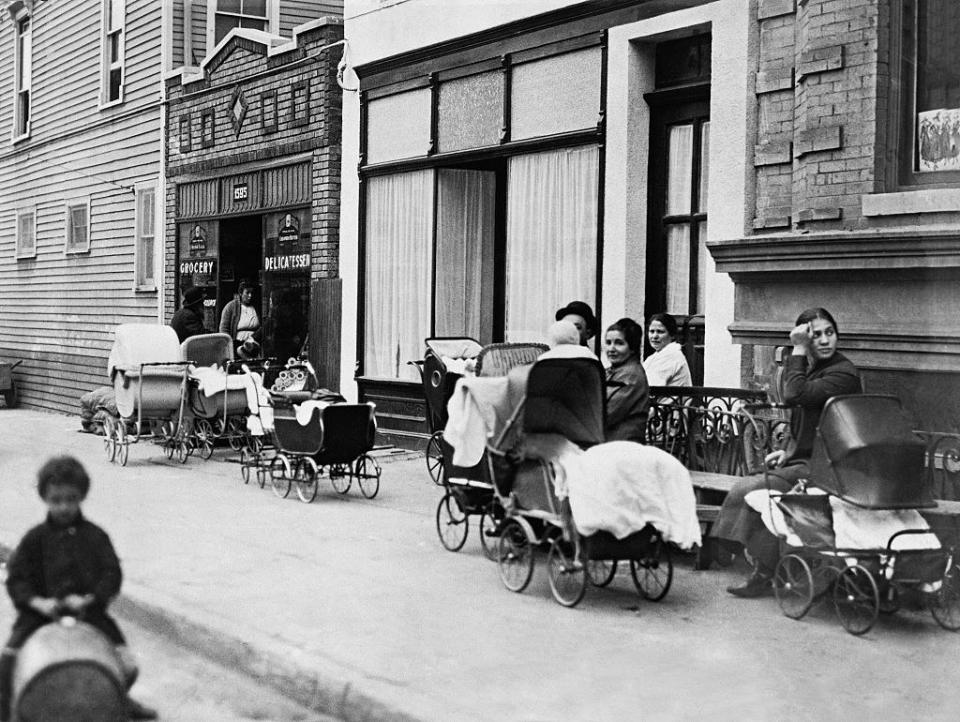
Dr. Nancy Shannon: For as long as people have been having sex, they’ve been trying to figure out ways to prevent conception! Advances in rubber in the 1800s led to the creation of the diaphragm and condom, and in 1839 Charles Goodyear created the technology to vulcanize rubber and make rubber condoms, IUDs, douching syringes, and womb veils, a barrier method that eventually lead to cervical caps and diaphragms, which were the most reliable methods until hormonal contraception came along. Even before that, from approximately 9000 to 1800 BC, it's believed that prehistoric people used notches on bones to track their cycles and take charge of their fertility — at least, that’s one interpretation of the Ishango Bone, an ancient tool found in Central Africa which some archeologists believe was for tracking lunar cycles. Fast-forward to 1916, and Margaret Sanger opens the nation’s first birth control clinic in Brooklyn. You can read more about the history of birth control on the Nurx blog.
9."Is it true that there are certain kinds of hormonal birth control that are more 'masculinizing' and others that are more 'feminizing'? And that they have different types of side effects?" —Anonymous

Dr. Nancy Shannon: All hormonal birth control contains a synthetic progesterone, called progestin, and there are different types of progestins. Some of these are a bit more “androgenic” in their effects, and others are less so. The differences between these progestins are minor and not noticeable in many patients, but in some cases those that are more androgenic may cause undesired side effects like acne. Be sure to talk to your medical provider for recommendations on a pill that's a good fit for you.
10."Is it bad if you don’t remember to take birth control pills at the exact same time every day?" —Anonymous
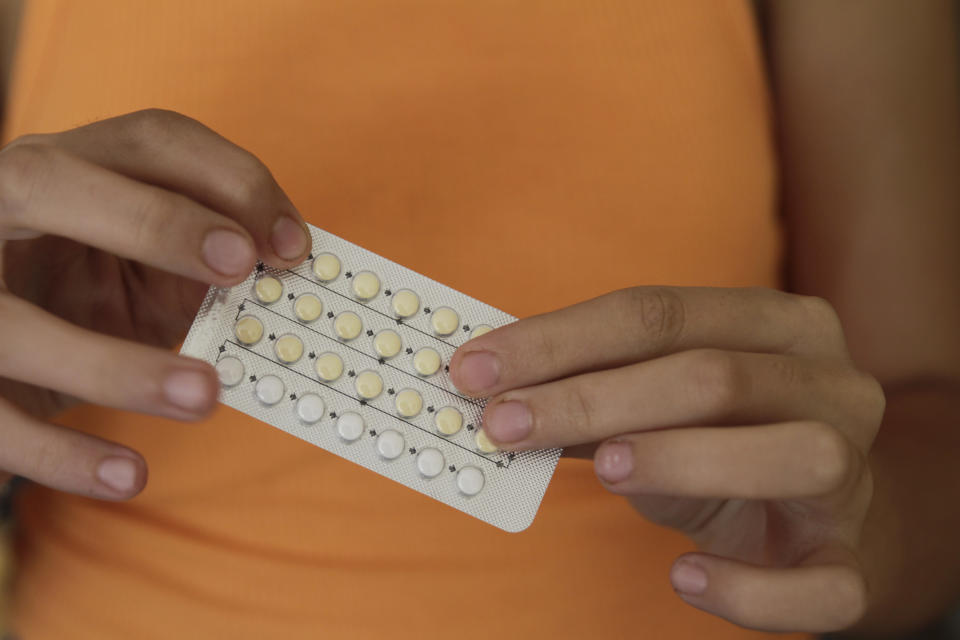
Dr. Nancy Shannon: The short answer: Yes, but it depends on what type of pill you are taking. If you take a progestin-only pill, also called a minipill, you must take it within the same three-hour window every day. If you miss a pill or take it outside that three-hour window, you should use a condom during the next 48 hours when you have sex. If you take combination pills (those that contain both estrogen and progestin), it’s probably fine to miss one pill, as long as you take it as soon as you realize you missed it (even if that means taking two pills in one day). If you miss two or more pills, learn what to do here.
11."Can you speak at all on your thoughts when it comes to cycle tracking and abstaining on fertile days as a birth control method?" —Anonymous

Dr. Nancy Shannon: Fertility awareness methods of birth control, also called natural family planning, is 76%–88% effective, meaning that 12–24 people out of 100 who use this method will get pregnant each year. How successful this method is for you depends on how disciplined you are about sticking with it, and on how regular your cycles are. There is an app, Natural Cycles, that supports this method and is actually FDA-approved as a form of birth control. However, hormonal birth control used correctly and long-acting contraceptives such as IUDs are more effective and a better choice for most people.
12."Is it normal to be on birth control pills for years and have normal periods and then suddenly stop getting it (and not be pregnant)?" —Anonymous

Dr. Nancy Shannon: While it may not be caused by anything worrisome, any abrupt change like this in your normal cycles should be investigated by your healthcare provider.
13."Over 40, is it important to reevaluate the type of pill you are taking? With hormones changing as I get older, I feel like it would be important… My cramps feel different, my skin needs different care, my night sweats are worse, but I can’t find information." —Anonymous
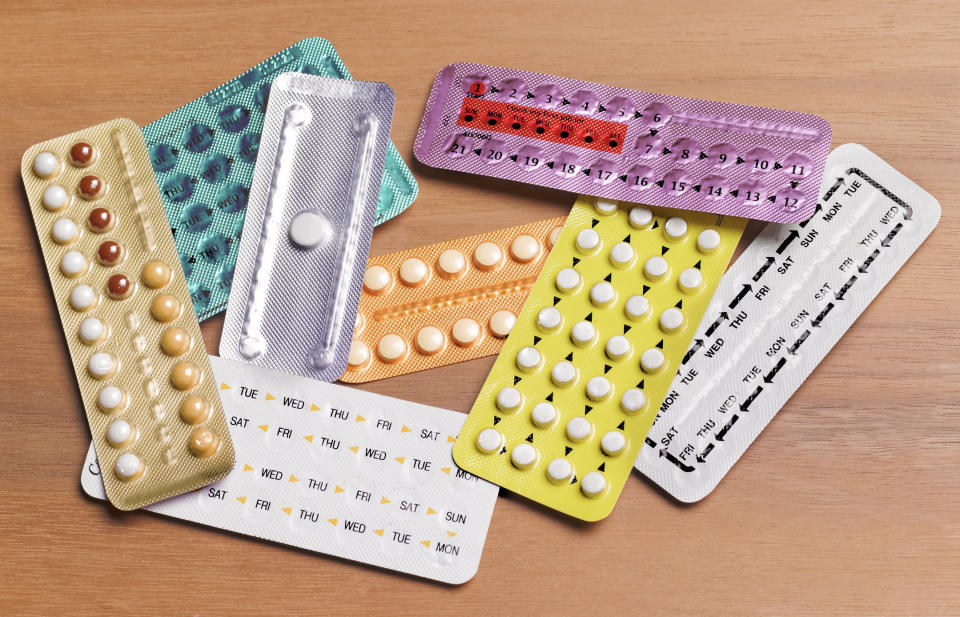
Dr. Nancy Shannon: Many birth control users do fine continuing on the same pill they've used for years. However, as people who experience menopause get closer to that period in their lives, some do better on a pill with less estrogen and possibly a different progestin. Be sure to talk to your provider about these concerns, as there could be causes and solutions other than the pill that should be explored.
14."If you don't ovulate while on birth control, do the eggs you have last longer, or will you still go through menopause at a usual time?" —Anonymous
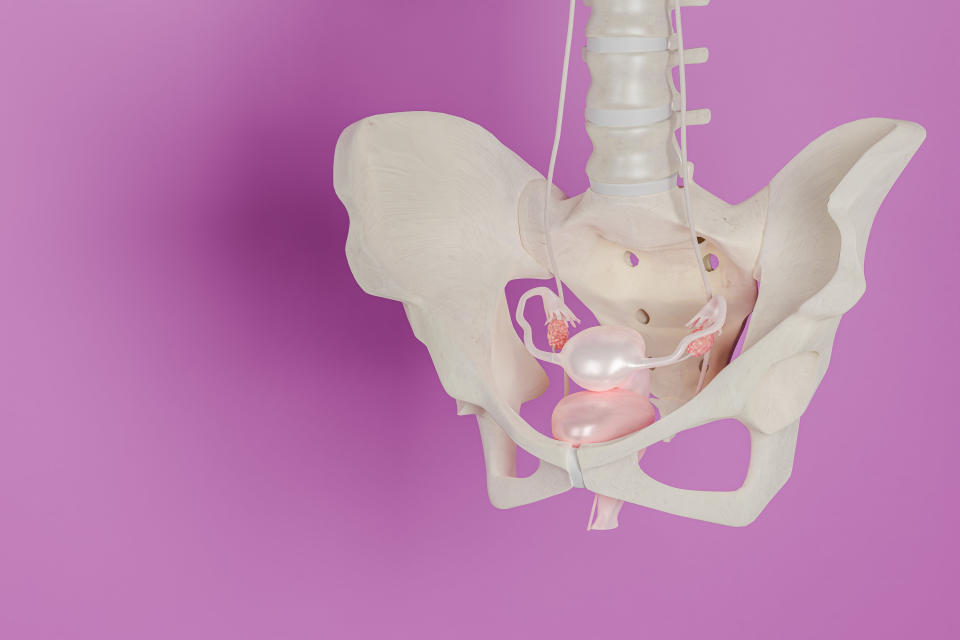
Dr. Nancy Shannon: Taking birth control to stop ovulation will not “preserve” your eggs or delay menopause. Fertility declines with age not because we run out of eggs but because the eggs get older and our hormones shift as we enter menopause.
15."Is it dangerous to take your birth control during what’s supposed to be your placebo week to skip your period? Can I do this long-term, like 20-plus years until menopause?" —Anonymous
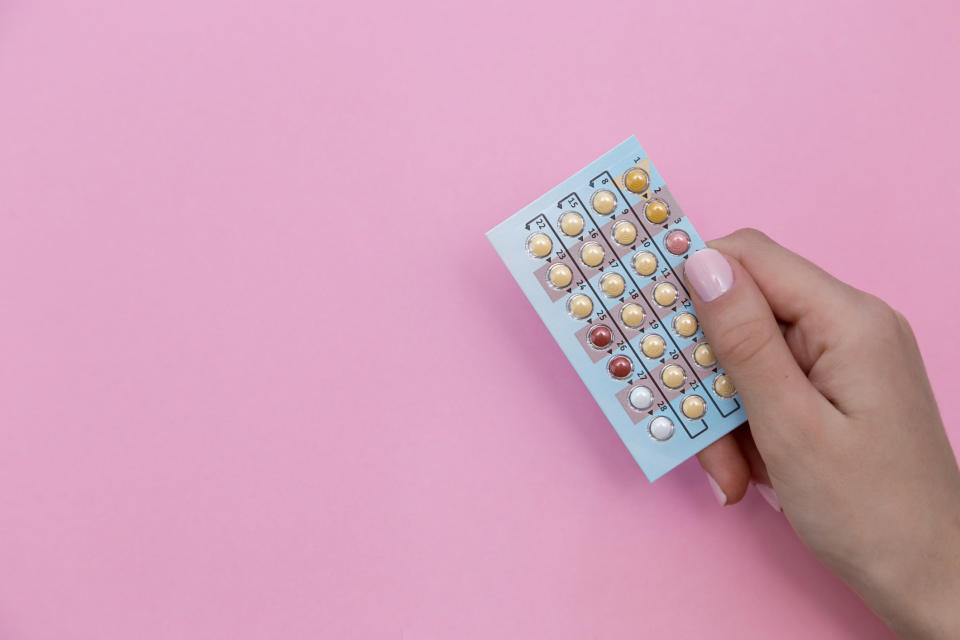
Dr. Nancy Shannon: No, skipping your periods is not considered dangerous. While it's fine to keep doing this long-term, many birth control users find that they have breakthrough bleeding and spotting if they go more than two or three months without a period. Again, this isn't necessarily dangerous, just annoying.
16."What is the process that happens in your body if you suddenly stop taking birth control pills?" —Anonymous
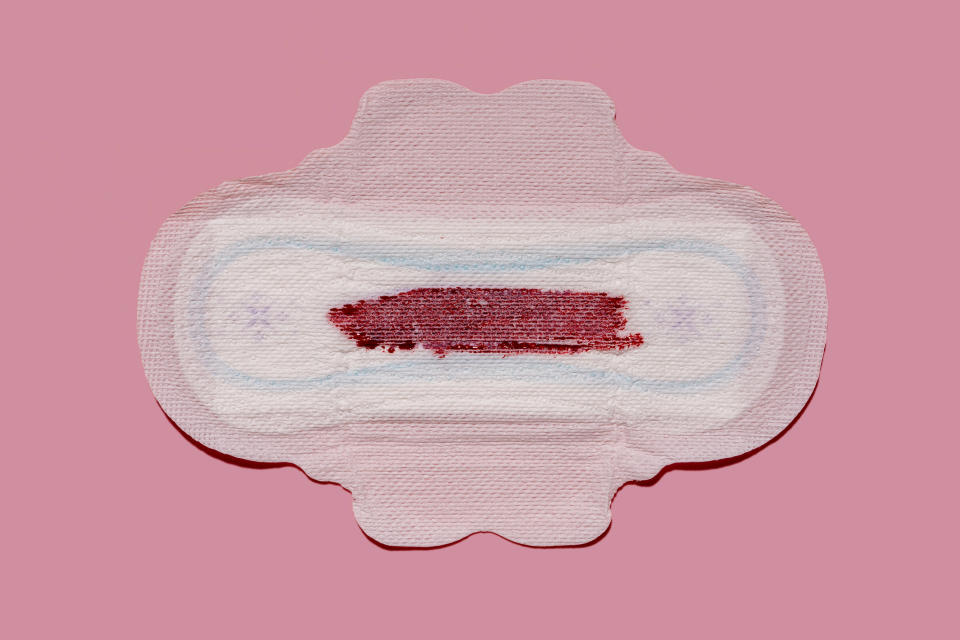
Dr. Nancy Shannon: When you suddenly stop taking birth control pills, your circulating hormone levels will drop, and you will most likely have a "withdrawal bleed," or period, within a few days. Your fertility can quickly return, so be sure to use an alternative form of contraception like condoms.
17."What are my safest, most effective options if I want to use a non-hormonal form of birth control?" —Anonymous
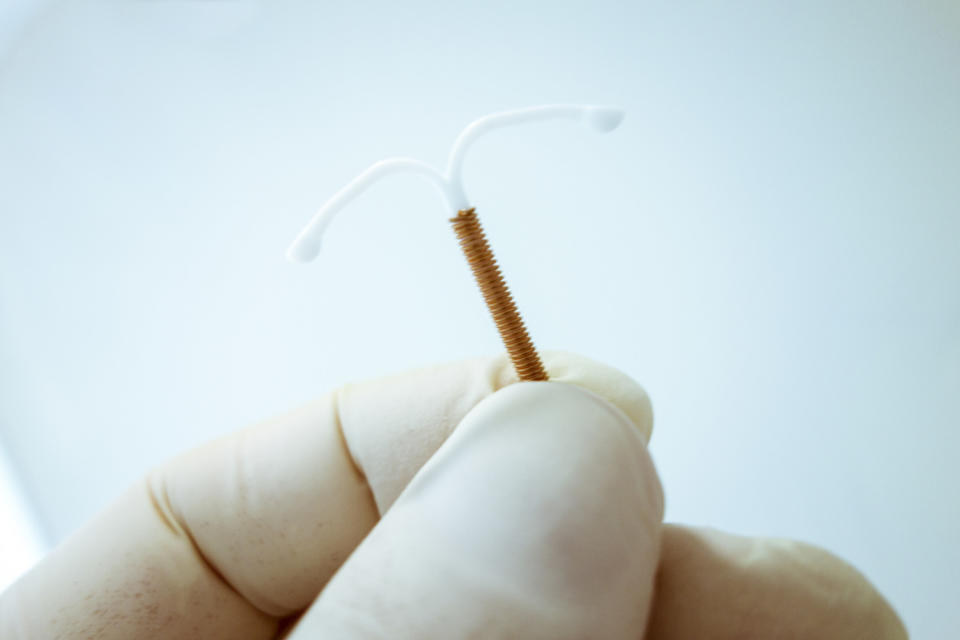
Dr. Nancy Shannon: The most effective reversible non-hormonal method is a copper IUD.
18."Could you explain the difference with POP (progesterone-only pills)?" —Anonymous

Dr. Nancy Shannon: Sure!
Progestin-only birth control pills, like all forms of hormonal birth control, work by altering the patterns of naturally occurring hormones in the body. But birth control pills that contain both estrogen and progestin work mainly by preventing ovulation, while progestin-only pills work by thickening cervical mucus, making it difficult for sperm to enter, and thinning the lining of the uterus to prevent pregnancy. Progestin-only pills can interfere with ovulation, but don’t always do so consistently.
When taken correctly, progestin-only pills are just as effective as combination pills, but it’s essential that you take POPs on time. You must take them within the same three-hour window every day, and if you miss that three-hour window you should use a condom any time you have sex for the next 48 hours.
You should also know that you take most types of progestin-only pills every day, without a placebo week (though one brand of POP, called Slynd, has four placebo pills at the end of each pack). You can’t use progestin-only pills to reliably skip periods, and you may experience spotting throughout the month as your body gets used to the POP. However, after the first few months, most people on POPs experience much lighter periods, and some stop having periods at all until they stop taking the POP.
19."Is it possible for the hormonal IUD to negatively affect your libido?" —Anonymous

Dr. Nancy Shannon: Libido is affected by so many things that it's difficult to know for sure, but this is not thought to be a side effect of hormonal IUDs in most cases.
20."How many years without pausing can I continue to take birth control? Is it alright to keep taking them for 20–30 years?" —Anonymous

Dr. Nancy Shannon: Yes, it is safe to take birth control for many years. Your risk of cardiovascular disease increases as you get older, so you and your provider may consider switching to a low-dose pill when you reach your 50s or sooner with an early menopause.
Got more questions about birth control or something related? That's OK! We'd love to hear about them in the comments below, and maybe we'll do a Part II.
Note: Responses and questions may have been edited for length/clarity,

